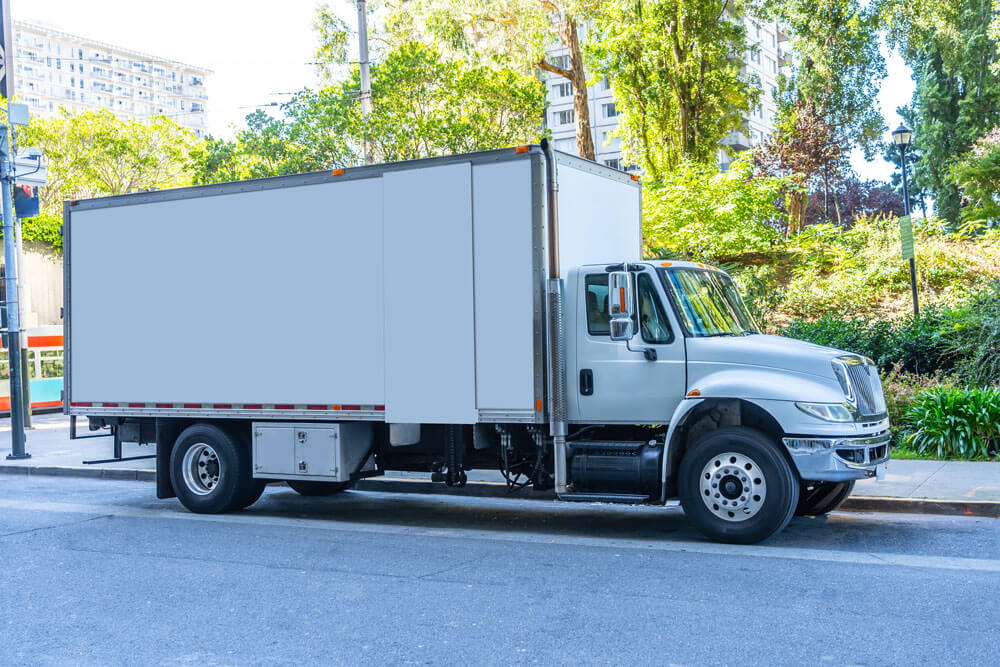
FacebookTweetLinkedInEmailPrint Box trucks are a vital asset for many businesses, playing an essential role in the supply chain.Whether delivering furniture, moving goods for a courier service, or transporting construction materials, box trucks are used daily to pick up cargo from warehouses and deliver it to designated locations.However, just like any commercial vehicle, box trucks carry valuable cargo that requires comprehensive protection.
Not only does the cargo need coverage, but the truck itself, the driver, and your business must be adequately insured to avoid financial hardship.In this article, we’ll break down what box truck insurance is, the various coverage options available, and why it’s essential for anyone operating a box truck.Let’s get started.
What’s Box Truck Insurance? Box truck insurance is a specialized form of commercial auto insurance that provides financial protection for box trucks and their cargo.It includes liability coverage for bodily injury and property damage, ensuring that if your truck causes an accident, the associated costs (medical bills, legal fees, or repairs) will be covered.Depending on your needs, you can also opt for coverage that protects the cargo you’re hauling.
Given the increasing congestion on our roadways, box truck insurance is crucial.Even if you’re a careful driver, accidents happen, and unexpected situations like collisions or cargo damage can lead to significant expenses.The right insurance policy will help safeguard your business from these financial risks.
What Does It Cover? Every box truck business is unique, so the insurance policies should be customized to fit specific needs.Basic coverage typically includes: In addition to these, optional coverages can enhance your protection: Do You Need Box Truck Insurance? Yes, you do! Most states have mandatory minimum insurance requirements for commercial vehicles, including box trucks.Failing to comply can lead to hefty fines or suspension of your operating authority.
Basic liability coverage is typically the minimum requirement, but additional coverage options are strongly recommended to fully protect your assets and reduce risks.Some common types of businesses that regularly use box trucks include: If you operate or own a box truck business, it’s vital to understand the insurance requirements.For example, Amazon Relay insurance requirements include specific coverage limits to participate in their delivery network.
Starting a Non CDL Box Truck Business Checklist If you’re considering launching a box truck business without a commercial driver’s license (CDL), here are some essential steps to get started: Register Your Business: Choose a business structure and register it with your state.Get Your DOT Number: Apply for a USDOT number if your business involves interstate transportation.Meet Insurance Requirements: Make sure you have the appropriate coverage, including liability, cargo, and physical damage insurance.
Obtain Necessary Permits: Ensure you have all the required permits and licenses for your state.Understand Amazon Relay Insurance Requirements: If you plan to work with Amazon Relay, review their insurance standards and make sure your policy complies.Invest in a Reliable Box Truck: Choose a truck that’s suitable for the type of cargo you plan to haul.
Takeaway Operating a box truck business comes with significant responsibilities and risks.Box truck insurance can protect your vehicle, cargo, and finances in case of an accident or unexpected incident.Whether you’re running your own business or working under someone else’s authority, ensure you’re informed about the state’s insurance requirements and the specific needs of your industry.
By following the right steps and securing proper coverage, you’ll keep your box truck business protected and ready for the road ahead.
FacebookTweetLinkedInEmailPrint
Publisher: InsuranceHub








